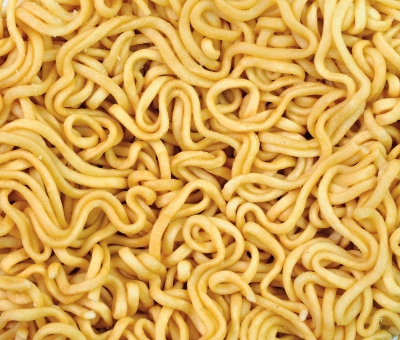The food and drug administration (FDA) of Maharashtra, a state in India, has found cases of misbranding and mislabeling after laboratory tests on a few samples of packaged foods revealed non-disclosure of certain contents.

The state FDA conducted laboratory tests on 27 samples of pasta and noodle variants of several brands. The findings revealed that out of the 27, at least 25 samples contained monosodium glutamate (MSG), despite the packages' labels mentioning "No Added MSG".
A notice under the Food Safety and Standards Act 2006 has been issued to brands such as ITC, Nestle, Chings and Ala Masala for misbranding.
The state FDA Commissioner Dr Harshdeep Kamble was quoted by The Indian Express as saying: "We have already conveyed this to these companies and they have assured to take corrective measures very soon."
According to FDA officials, a penalty fee will be collected from the companies for violation of food safety rules, the news daily reported.
FDA began a stringent drive of testing packaged food after nationwide lab test reports revealed excessive presence of lead and MSG in Maggi Noodles.
Following this, the Food Safety and Standards Authority of India (FSSAI) directed states to conduct laboratory analysis on other brands of noodles, pasta and other processed food items to idenitfy any other possible violations.
In June, random samples of Wai Wai noodles, Nissin's Top Ramen noodles, ITC's Yippee, Foodles' Ala Masala noodles, Nestle's Tomato Twist and Masala Penne pasta, had been collected for analysis, reported The Indian Express.
FDA Assistant Food Commissioner G Palikar was quoted by the publication as saying: "None of the samples have lead beyond permissible limits. But there were other contraventions. Certain quantities in a few samples were beyond what was mentioned on the label of the package."
G Palikar said that in a few samples the ash value was more than what was printed on the label. Ash value in flour affects the colouration of noodles. As per food experts, low ash content is desirable for noodles' quantity and colour.
The presence of MSG was another bone of contention in some samples as they did not mention that they carried the ingredient on the packages. Moreover there were disclaimers that these products, which actually had MSG, stated that there were 'no added MSG'.
MSG is a flavour enhancer that has been generally recognised as safe by the US FDA. However, experts say that it could lead to side-effects in the form of headaches, muscle weakness and shortness of breath.
Wai Wai and Top Ramen noodles cleared the laboratory tests. Neither of these samples contained MSG or high amounts of ash, reported the publication.
A fine to the tune of Rs 500,000 is likely to be collected from the brands that were found to have misbranded their products.
The mislabeling of brands come on a day when Nestle has re-launched Maggi Noodles into the market, seeking to make good the losses of the past few months.
Image: Brands under fire for mislabeling products. Photo: Courtesy of SOMMAI/FreeDigitalPhotos.net.





